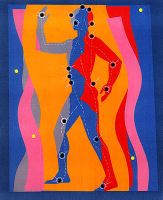 “Acupuncture reduced by half the hot flushes caused by tamoxifen in 59 breast cancer patients after surgery,” according to this study presented at the European Breast Cancer Conference (EBCC) in Berlin. Continue reading Acupuncture in women after breast cancer surgery
“Acupuncture reduced by half the hot flushes caused by tamoxifen in 59 breast cancer patients after surgery,” according to this study presented at the European Breast Cancer Conference (EBCC) in Berlin. Continue reading Acupuncture in women after breast cancer surgery
Monthly Archives: April 2008
The value of massage in patients with dementia
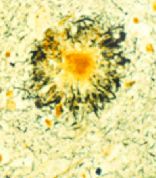
Based on what is available, here’s what we know.
Continue reading The value of massage in patients with dementia
Status of curcumin for Alzheimer’s disease
 Two doctors from the VA Medical Center in Sepulveda, California have written a review of curcumin (turmeric) and Alzheimer’s disease (AD).
Two doctors from the VA Medical Center in Sepulveda, California have written a review of curcumin (turmeric) and Alzheimer’s disease (AD).
Anyone looking for evidence of the effectiveness of curcumin when taken by people with AD will be disappointed. Continue reading Status of curcumin for Alzheimer’s disease
Chocolate slows your ability to clot blood, a little
 Volunteers in a study reported on Medscape were told not to do things known to slow the clotting of blood by inhibiting platelet function.
Volunteers in a study reported on Medscape were told not to do things known to slow the clotting of blood by inhibiting platelet function.
But some just couldn’t stop eating chocolate. Continue reading Chocolate slows your ability to clot blood, a little
Internet monitoring and education in asthmatic children
 According to researchers from Tripler Army Medical Center in Honolulu, the children had “excellent asthma treatment and disease control.”
According to researchers from Tripler Army Medical Center in Honolulu, the children had “excellent asthma treatment and disease control.”
Here are the details.
Continue reading Internet monitoring and education in asthmatic children
The value of physiotherapy following stroke
 Physiotherapy (or physical therapy) is defined as the treatment of disease by physical exercise, massage, or other manipulative body-based methods — not drugs. Wikipedia has a good overview.
Physiotherapy (or physical therapy) is defined as the treatment of disease by physical exercise, massage, or other manipulative body-based methods — not drugs. Wikipedia has a good overview.
Cochrane has judged the evidence. Continue reading The value of physiotherapy following stroke
Rantings from a burned out resident
 Panda Bear is a blog maintained by an emergency department resident physician. His views on CAM make Dr. Wallace Sampson seem like a believer.
Panda Bear is a blog maintained by an emergency department resident physician. His views on CAM make Dr. Wallace Sampson seem like a believer.
Caution: You are about to enter a stomach-wrenching zone. Continue reading Rantings from a burned out resident
Benefits of yoga in patients with heart disease
 Stress is one of the most commonly reported risk factors for cardiovascular disease among the general public and among patients who have had a heart attack.
Stress is one of the most commonly reported risk factors for cardiovascular disease among the general public and among patients who have had a heart attack.
Now, a study of 33 adults concludes that 1.5 hours of yoga and meditation three times weekly for 6 weeks, with additional sessions at home, has benefits for people with heart disease.
Continue reading Benefits of yoga in patients with heart disease
Diet and cancer prevention: What we know
![]() The European Prospective Investigation into Cancer and Nutrition (EPIC) is designed to investigate the relationship between diet and cancer. It’s a multicenter study of more than 500,000 adults in 23 centers from 10 European countries.
The European Prospective Investigation into Cancer and Nutrition (EPIC) is designed to investigate the relationship between diet and cancer. It’s a multicenter study of more than 500,000 adults in 23 centers from 10 European countries.
Here’s what we now know. Continue reading Diet and cancer prevention: What we know
Chasteberry to treat breast discomfort and premenstrual syndrome
 Chasteberry (Vitex agnus-castus), or monk’s pepper is an herbal medicine that may be effective in treatment of cyclical breast discomfort and premenstrual syndrome. This is the conclusion reached in a review published in American Family Physician.
Chasteberry (Vitex agnus-castus), or monk’s pepper is an herbal medicine that may be effective in treatment of cyclical breast discomfort and premenstrual syndrome. This is the conclusion reached in a review published in American Family Physician.
On the other hand?
Continue reading Chasteberry to treat breast discomfort and premenstrual syndrome
Meeting highlights
ttmed reports on the 2nd International Conference on Hypertension, Lipids, Diabetes and Stroke Prevention in Prague.
Here are the CAM highlights. Continue reading Meeting highlights
Wolfsbane: Uses, risks, and admonitions
“The wolfsbane I should dread;
Nor will I dreary rosemarye,
That always mourns the dead;
But I will woo the dainty rose,
With her cheeks of tender red.” …Thomas Hood
Wolfsbane (Aconitum napellus, aconite, monkshood) is sometimes included in herbal remedies to treat inflammation, pain, musculoskeletal problems (eg arthritis), and heart problems. Continue reading Wolfsbane: Uses, risks, and admonitions
More US hospitals offering CAM
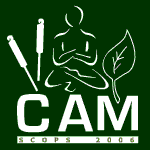 A survey of more than 6000 US hospitals by the American Hospital Association reveals that among 1400 responders, the percentage of hospitals offering at least one CAM service increased from 8% in 1998 to 27% in 2005. Continue reading More US hospitals offering CAM
A survey of more than 6000 US hospitals by the American Hospital Association reveals that among 1400 responders, the percentage of hospitals offering at least one CAM service increased from 8% in 1998 to 27% in 2005. Continue reading More US hospitals offering CAM
Cannabis drug fails in neuropathic pain due to MS
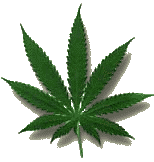 GW Pharmaceuticals has announced that its major study of Sativex in 339 patients with central neuropathic pain due to multiple sclerosis (MS) failed to provide adequate pain relieve in patients who had failed conventional therapy previously. Continue reading Cannabis drug fails in neuropathic pain due to MS
GW Pharmaceuticals has announced that its major study of Sativex in 339 patients with central neuropathic pain due to multiple sclerosis (MS) failed to provide adequate pain relieve in patients who had failed conventional therapy previously. Continue reading Cannabis drug fails in neuropathic pain due to MS
Chiropractic Awareness Week
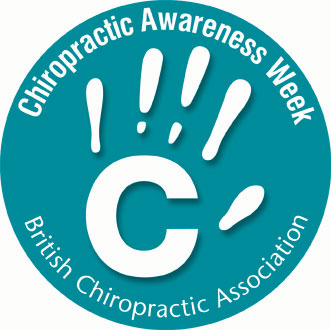 It runs from April 14th to 20th in the UK.
It runs from April 14th to 20th in the UK.
The British Chiropractic Association is offering a controlled 3-minute exercise routine. Continue reading Chiropractic Awareness Week
Going to court over the lead content in Ayurvedic meds
 A woman from Iowa has filed a lawsuit claiming she contracted lead poisoning from a Maharishi herbal product.
A woman from Iowa has filed a lawsuit claiming she contracted lead poisoning from a Maharishi herbal product.
She apparently got it from a physician at a clinic in India.
A reader treated by the same doctor at the same clinic had a different experience and shares it in his comment.
Continue reading Going to court over the lead content in Ayurvedic meds
Closing homeopathic hospitals in the UK
 Here’s the latest on the controversy over homeopathy in the UK. Continue reading Closing homeopathic hospitals in the UK
Here’s the latest on the controversy over homeopathy in the UK. Continue reading Closing homeopathic hospitals in the UK
CAM: Is it good or bad for ya?
 Professor Edzard Ernst (photo) from the Peninsula Medical School, Universities of Exeter & Plymouth UK has published an editorial in the British Medical Journal.
Professor Edzard Ernst (photo) from the Peninsula Medical School, Universities of Exeter & Plymouth UK has published an editorial in the British Medical Journal.
He sums up the state of the debate and makes a few surprising comments. Continue reading CAM: Is it good or bad for ya?
Blood-sucking leeches treat osteoarthritis
 Two reports from the University of Duisburg-Essen in Germany support the role of leeches (Hirudo medicinalis) to treat osteoarthritis of the knee. The first included 16 patients who, in addition to other treatments, received four medicinal leeches on the inflamed knee for 80 minutes. The response was compared to 6 patients given conventional pain treatment. The second study was of similar design in 51 patients.
Two reports from the University of Duisburg-Essen in Germany support the role of leeches (Hirudo medicinalis) to treat osteoarthritis of the knee. The first included 16 patients who, in addition to other treatments, received four medicinal leeches on the inflamed knee for 80 minutes. The response was compared to 6 patients given conventional pain treatment. The second study was of similar design in 51 patients.
The risk of infection following acupuncture
 A few years ago I reviewed the safety of acupuncture and concluded that side effects due to acupuncture are uncommon events. This is still the general consensus. However, poor technique and negligence can place patients at risk of side effects that they had not counted on. Continue reading The risk of infection following acupuncture
A few years ago I reviewed the safety of acupuncture and concluded that side effects due to acupuncture are uncommon events. This is still the general consensus. However, poor technique and negligence can place patients at risk of side effects that they had not counted on. Continue reading The risk of infection following acupuncture